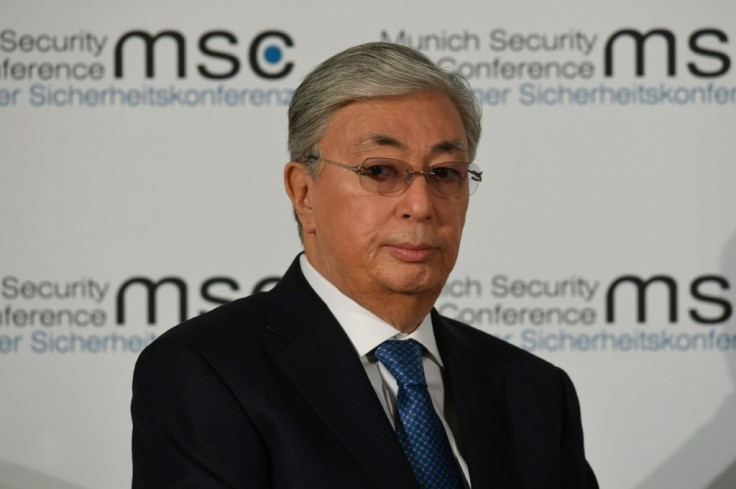Kazakhstan Detains Up To 100 Opposition Protesters

Police in Kazakhstan detained up to 100 activists Saturday after two opposition groups called for anti-government protests in the oil-rich Central Asian country.
An AFP correspondent saw police detain around 30 activists from the unregistered Democratic Party who were attempting to hold a protest in the largest city Almaty.
Police surrounded the protesters gathered on a city square while municipal officials used megaphones to demand the protesters vacate the area.
The protesters shouted "Freedom to Mamay!" in reference to a prominent Democratic Party activist and filmmaker Zhanbolat Mamay who was arrested on Friday and sentenced to three days' detention for calling for the unsanctioned rally.
Mamay's pregnant wife, journalist Inga Imanbay, was among the activists detained near the square on Saturday. She was later released.
Eyewitnesses said police had detained up to 70 people en route to the square where the opposition group had called for the protest to be held.
Authoritarian Kazakhstan has long faced criticism from local and international rights groups for its restrictive laws regulating demonstrations.
Mamay told AFP by telephone Friday that "at least 10" members of his group had received sentences of up to five days in detention earlier this week -- a measure he said was intended to prevent the Democratic Party holding a conference.
He was detained hours later.
Another group, Democratic Choice of Kazakhstan (DCK), had also announced plans to hold a rally on Saturday.
A Kazakh court banned the group as extremist in 2018 and the country's state prosecutor on Friday warned people not to participate in the group's protest.
DCK's France-based leader, Mukhtar Ablyazov, thanked the state prosecutor for giving the group "an advertisement" ahead of the demonstration.
Ablyazov -- a former energy minister, banker and long-time opponent of Kazakhstan's regime who fled the country in 2009 -- has said the extremism ban is simply a pretext to crack down on the group.
Kazakh President Kassym-Jomart Tokayev pledged to reform laws governing freedom of assembly shortly after succeeding long-ruling Nursultan Nazarbayev as president last year.
But civil society groups in the Central Asian state have expressed dissatisfaction with a new draft law, which they argue would introduce additional restrictions.
Currently, activists risk arrest if they hold demonstrations without permission from the authorities, which is almost never given for political demonstrations.
Nazarbayev, 79, who became Kazakhstan's president the year before its formal independence from the Soviet Union in 1991, is still widely viewed as dominating policymaking in the vast republic of 18 million people.
© Copyright AFP {{Year}}. All rights reserved.





















